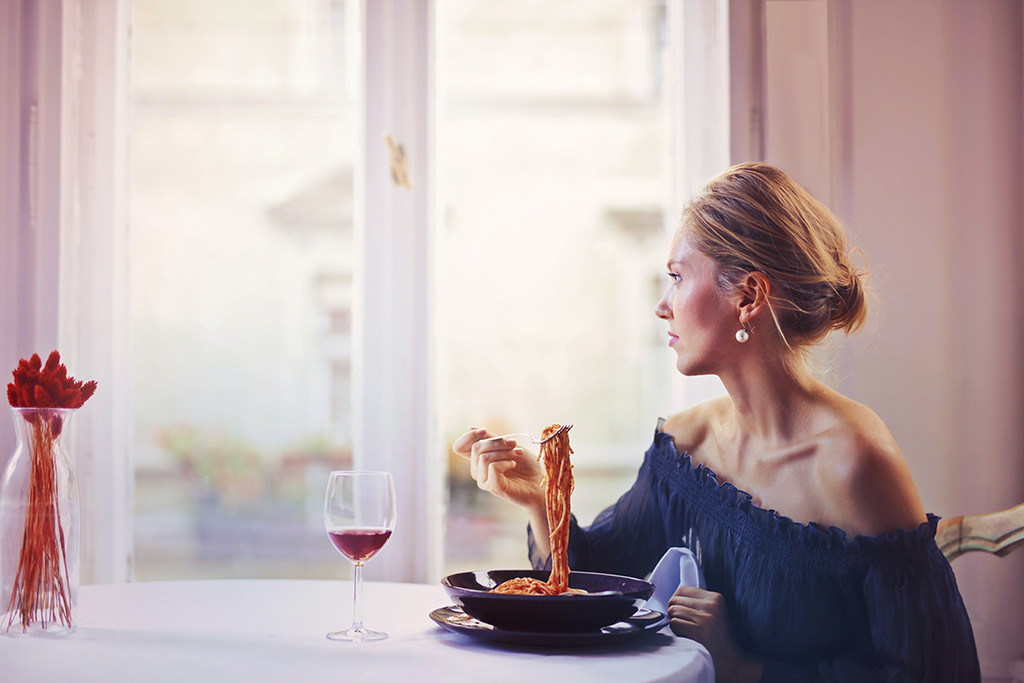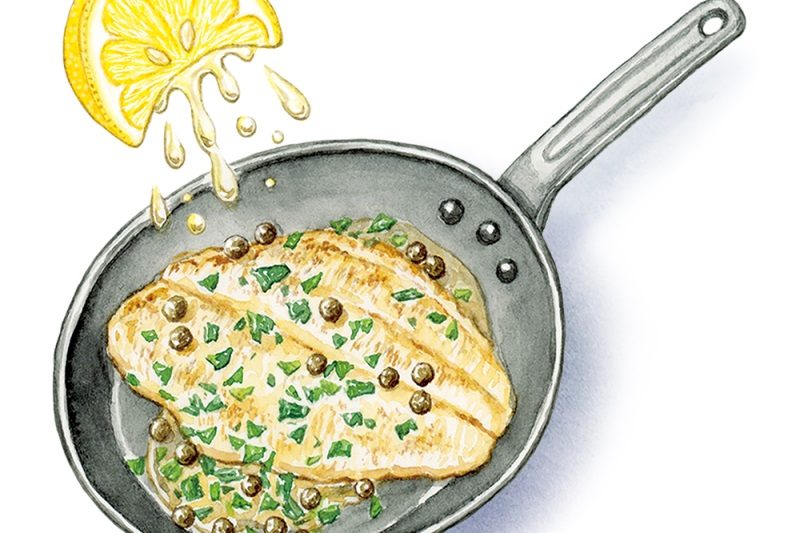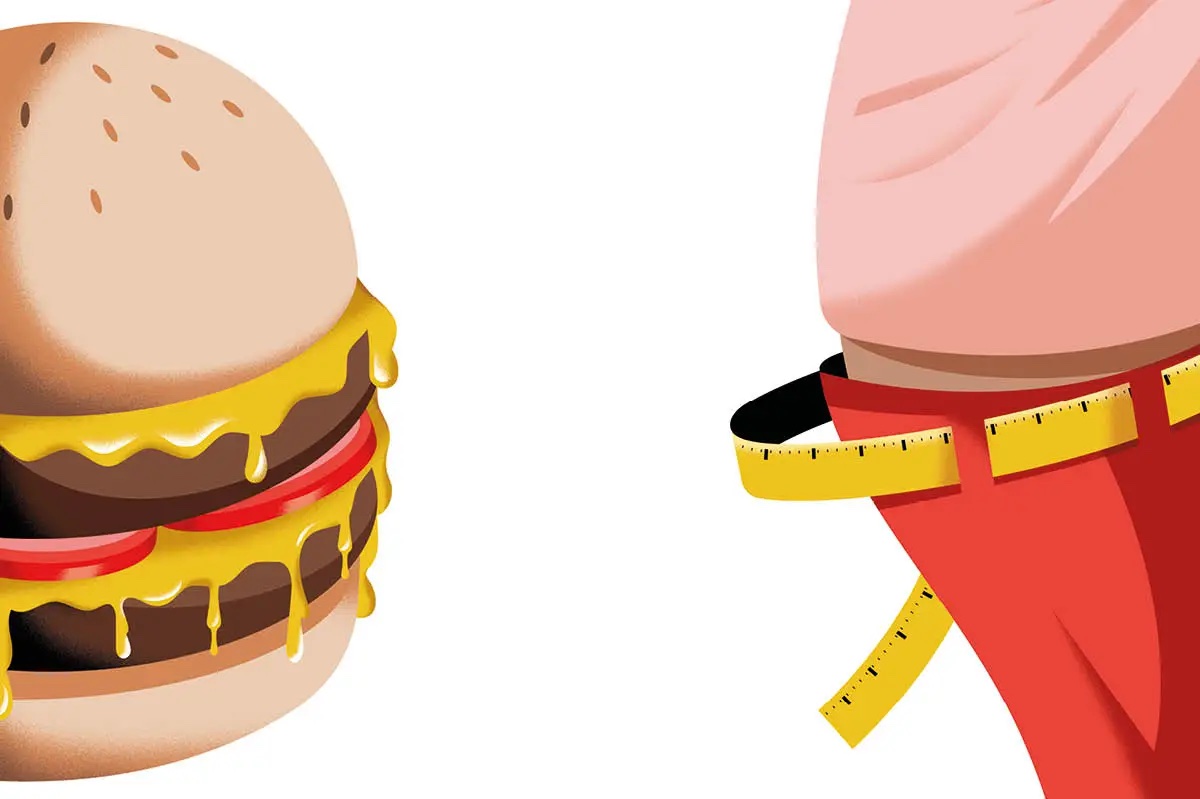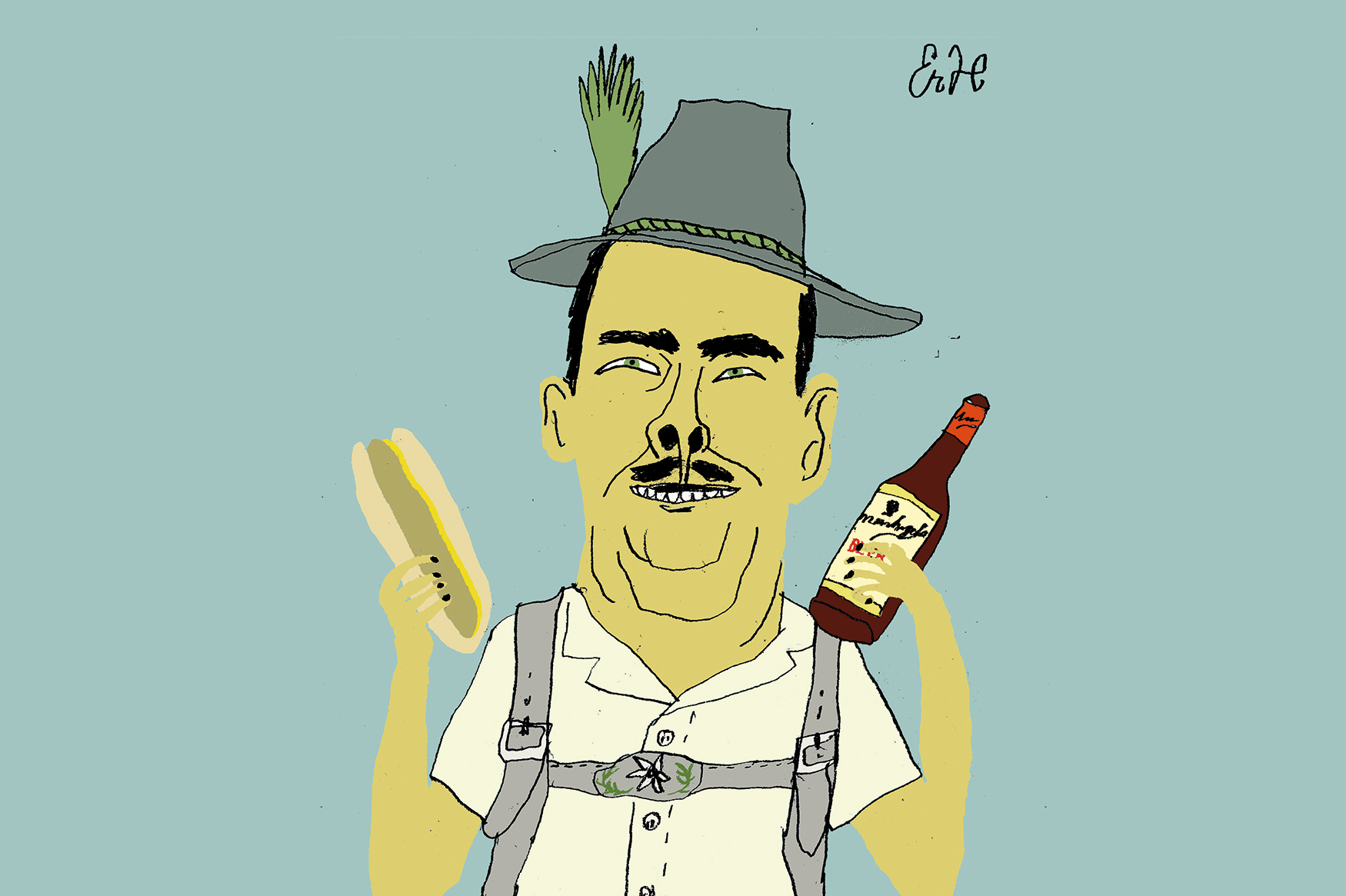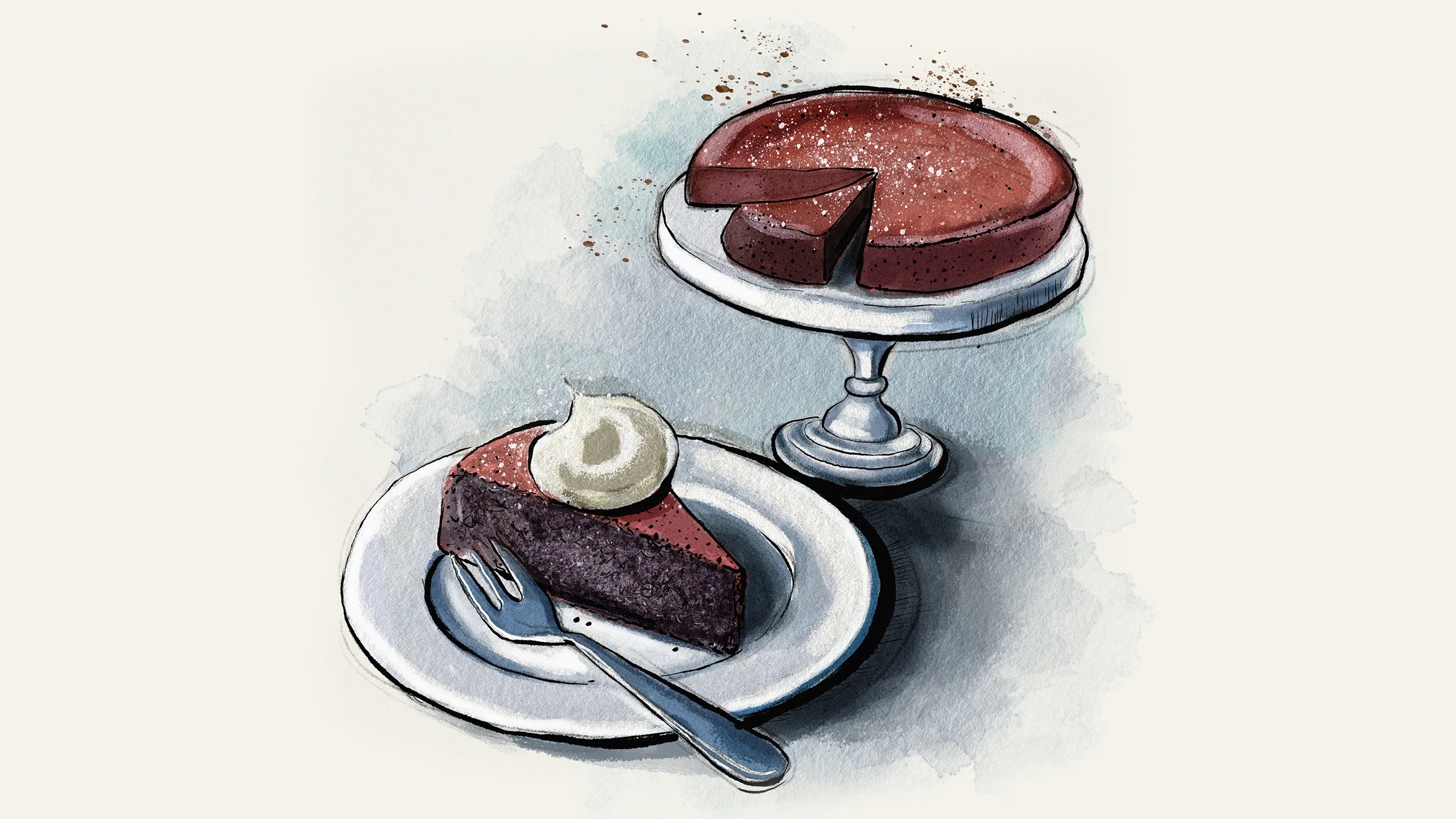To some, the phrase “table for one, please” is among the saddest in the English language. Perhaps this isn’t a surprise; the concept of social dining for pleasure dates back to Ancient Greece. There, meals would be served at all-male gatherings on low tables so the guests could recline while eating (a recipe for heartburn, but luxurious nonetheless). Then would come the symposium, the section of the evening dedicated to drinking. Although we mix the two a little more fluidly now, the concept is much the same: sharing a meal and drinks with others is an enjoyable thing to do, so people do it.
So eating alone has long held a kind of stigma. But I relish the time with my own thoughts, especially in a city as relentless as London. Friends often ask if I feel judged for sitting alone — especially as a woman — or wonder whether other diners take pity: maybe I’ve been stood up? But truthfully, nobody in a group is very interested in what’s happening at the next table. (Although there’s no better time to people-watch than when you’re alone; strangers’ eating habits are riveting.)
Dining alone is a phenomenon that is on the rise. The latest figures from booking platform OpenTable showed a 160 percent increase over four years in bookings for one, while many restaurants are installing bar seating to accommodate the growing number of solo diners. I’ve read lots of articles recommending “the best places to eat alone” or offering tips for doing so.
One of the most luxurious things I’ve ever done for myself was to have a solo lunch at Borough Market in London: six oysters and a glass of cold white wine on a roasting hot day. The wine was almost as clear as water. I chatted to the barman, who talked me through his shucking technique and recommended the best dressings; then I read a book for an hour or so. There is no guest on Earth who would have improved the experience.
It’s important to draw a distinction between loneliness and comfortable solitude; the former is a tragedy, the latter a blessing. The Wellbeing Index revealed in 2019 that almost a third of British adults eat alone “most or all of the time.” This is surely a figure which will have been exacerbated by the pandemic. But eating alone could help remedy this. I often spot people who have booked for one striking up a conversation with a neighboring diner. They’ve ended up not eating alone after all. It’s a cheering sight — and one of the most pleasant things about heading out alone.
Dining by myself in Chinatown one evening, I started talking to a well-heeled older woman, also sitting alone, eating a noodle soup with admirable elegance. I’d ordered salt and chili tofu — soft and spicy with a crunchy exterior — which she’d never tried, so I offered her a taste, and she accepted. She said she’d come back again and order it. I sometimes wonder if she did.
This article is taken from The Spectator’s June 2023 World edition.



